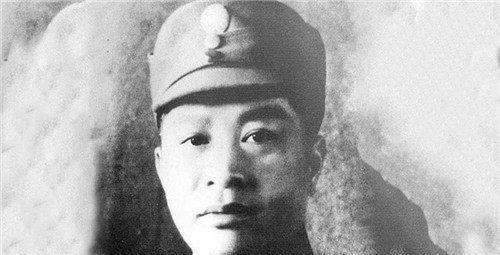He was Sun Yat-sen's right-hand man, Ye Tingchen Cheng, Xue Yue and other subordinates, but died under random gunfire
For Ye Ting, I believe that everyone is familiar with him, the independent regiment he led became the main force of the Nanchang rebel army after the end of the Northern Expedition; and Chen Cheng was Chiang Kai-shek's most trusted subordinate, and Xue Yue was also a well-known military leader in the nationalist army, but such a powerful figure was this person's subordinate.

Only he can pick up these big men in the military circles of the Republic of China, who is he?
This person is Deng Hao.
Deng Hao, who was born in Meixian County, Guangdong Province, was one year older than Chiang Kai-shek, and if he wanted to rank seniors in the Kuomintang, he was much taller than Chiang Kai-shek. To judge a person's seniority in the Kuomintang, one need only look at his resume and whether he participated in the Huanghuagang Uprising in Guangzhou in 1910, which is an important criterion. And Deng Hao not only participated in this uprising, but also was an important figure in it.
On the eve of the Huanghuagang uprising, Deng Hao's family opened a rice factory in Guangzhou to smoothly carry out the uprising. Deng Hao did not hesitate to abandon the rice factory as a temporary headquarters of the revolution. Many people felt sorry and distressed about this, but Deng Hao firmly said: "As long as the revolution can succeed, even my life can be offered!" ”
Deng Hao is such a person, who will stop at nothing for the sake of the revolution. Regrettably, the Huanghuagang Uprising ultimately failed. Deng Hao and the others had to flee overseas to find another opportunity.
In September 1911, Deng Hao and Chen Jiongming secretly infiltrated Tamsui and quietly developed their forces, gathering more than 500 revolutionary volunteers in just two days. Later, as the scale grew larger, Chen Jiongming was made commander-in-chief and Deng Hao was the chief of staff of the commander-in-chief, and a fierce battle was fought against the Qing army in Huizhou. It was also the Battle of Huizhou that beat Deng Hao's fame out.
After the recovery of Guangdong Province, Deng Hao was also appointed chief of staff of the Governor's Office. Hu Hanmin, the governor of Guangdong at the time, was very optimistic about him and wanted to marry his daughter to him, but Deng Hao, in order to avoid suspicion, politely refused. In his mind, only Sun Yat-sen was a true revolutionary, and Hu Hanmin had not yet reached that level.
In 1914, Deng Hao followed Sun Yat-sen to join the Chinese Revolutionary Party in Japan, and since then, Deng Hao has become Sun Yat-sen's right and left arm, and Liao Zhongkai and Zhu Zhixin are all close confidants of Sun Yat-sen. However, unlike the two of them, Deng Hao was engaged in military affairs, and the two of them were political. After Sun Yat-sen had Deng Hao, he added wings like a tiger, and the main reason why Sun Yat-sen could not fight Yuan Shikai was that the gun was not in Sun Yat-sen's hands.
Deng Hao is best known for his creation of the First Division of the Cantonese Army. Perhaps many people are not very clear about this, but in other words, everyone can suddenly understand. The First Division of the Cantonese Army was later divided into two parts, one controlled by Chen Jiongming and partly controlled by Sun Yat-sen. The part that followed Sun Yat-sen eventually became the famous Northern Expedition Fourth Army, which was divided into four parts: Chen Mingshu, Chen Jitang, Zhang Fakui, and Ye Ting.
Why would such a bullish character die under the gunfire?
This is mainly because Deng Hao ruled the army strictly, was honest and honest, and was jealous and hateful, and in the process, he accidentally offended people.
Deng Hao hated opium the most, and once he knew that opium had flowed into China, especially within his jurisdiction, he would try his best to burn it, no matter who did it, he would not give the slightest face. Chen Jiongming, who joined the revolution with him, had secretly sold opium, and after Being discovered by Deng Hao, he directly ordered the opium to be destroyed. Perhaps it was this one thing that laid the foundation for the curse.
On March 21, 1922, Deng Hao, who had just returned from Hong Kong, encountered an ambush on the way back and was unfortunately shot dead by gunmen, when he was only 36 years old. Before dying, Deng Hao shouted, "It's hard to be a good person!" Many people suspect that Deng Hao's death was done by Chen Jiongming, but there is no evidence to prove it, and there is no way to verify it.
wretched! lamentable! A generation of famous generals died in this way, and if he were still alive, perhaps the humiliating history of the Republic of China would not have happened. After this, Deng Hao was posthumously awarded the title of General of the Army.